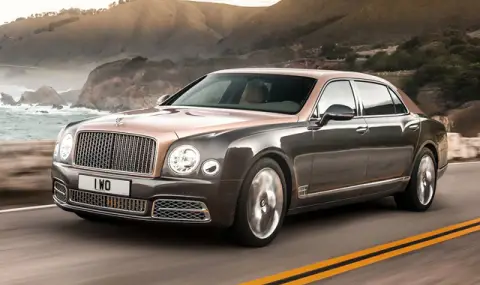Bentley CEO Frank-Stephan Walliser explained the brand's decision to abandon the launch of a successor to the flagship Mulsanne sedan. In an interview with Automotive News, he emphasized that in today's conditions, creating a new sedan would be economically inexpedient. Although the Mulsanne model had its audience, the company believes that this segment has become niche and there is no great demand. Investments in the development of a new sedan are currently not justified, so Bentley will focus on other, more promising market segments.
For almost five years, the role of Bentley's flagship has been played by the less prestigious but more mass-oriented Flying Spur model, which recently entered its fourth generation. At the same time, the future of the British Bentley brand looks ahead with an emphasis on crossovers. The Bentayga has been a market leader for many years, and according to Walliser, customer tastes are not expected to change anytime soon. This means that Bentley will continue to launch new products in the SUV segment in the coming years, including electrified models. So, the company plans to launch one new product with electric or hybrid powertrains every year.

Despite this emphasis on electrification, Bentley has no intention of completely abandoning cars with internal combustion engines (ICE). The company notes that although interest in internal combustion engines is decreasing, there is no need to rush to a full transition to electric propulsion, as a certain part of buyers remains interested in classic options. Bentley's first all-electric car is expected to debut in the second half of 2026 and will be a new crossover.
According to rumors, the company is also preparing to release a “tuned” version of the Bentley Bentayga, equipped with a non-hybrid V8 engine with a capacity of 600 horsepower. This model should replace the Bentayga Speed In particular, the company passed the first quarter of 2025 with positive results.
